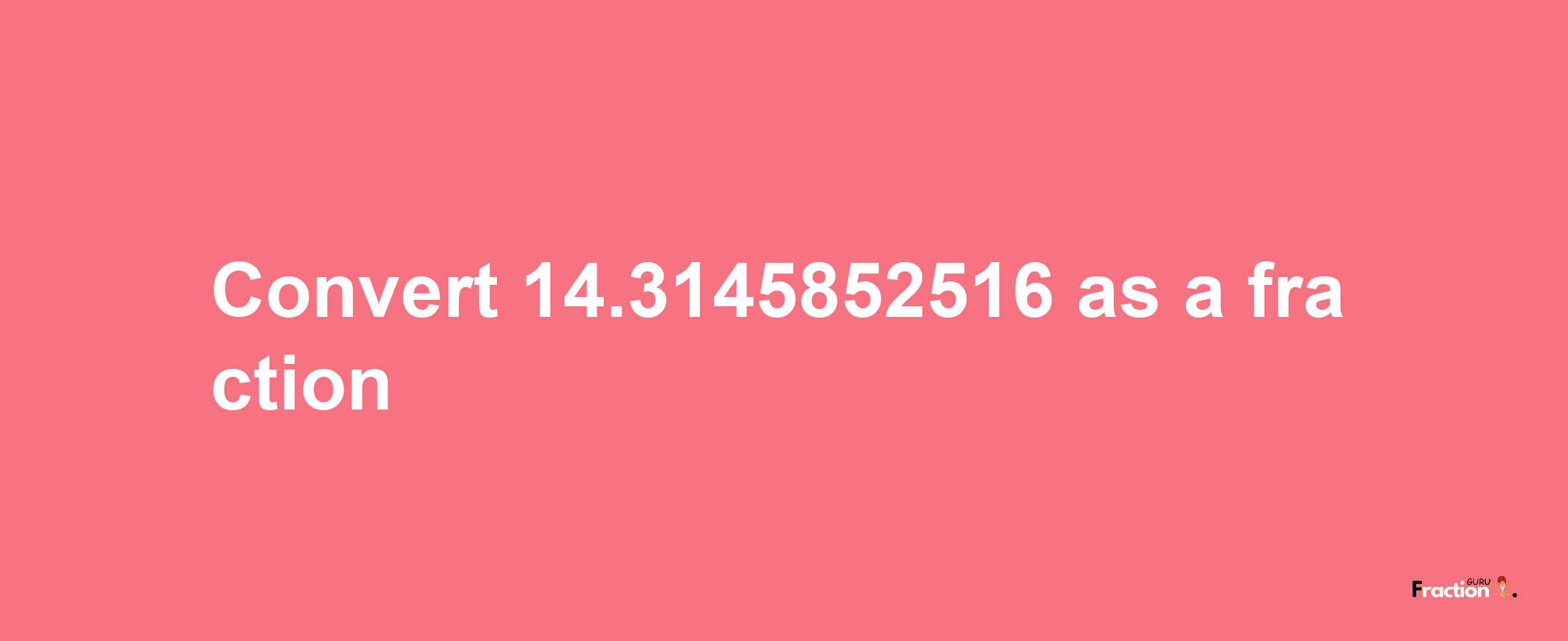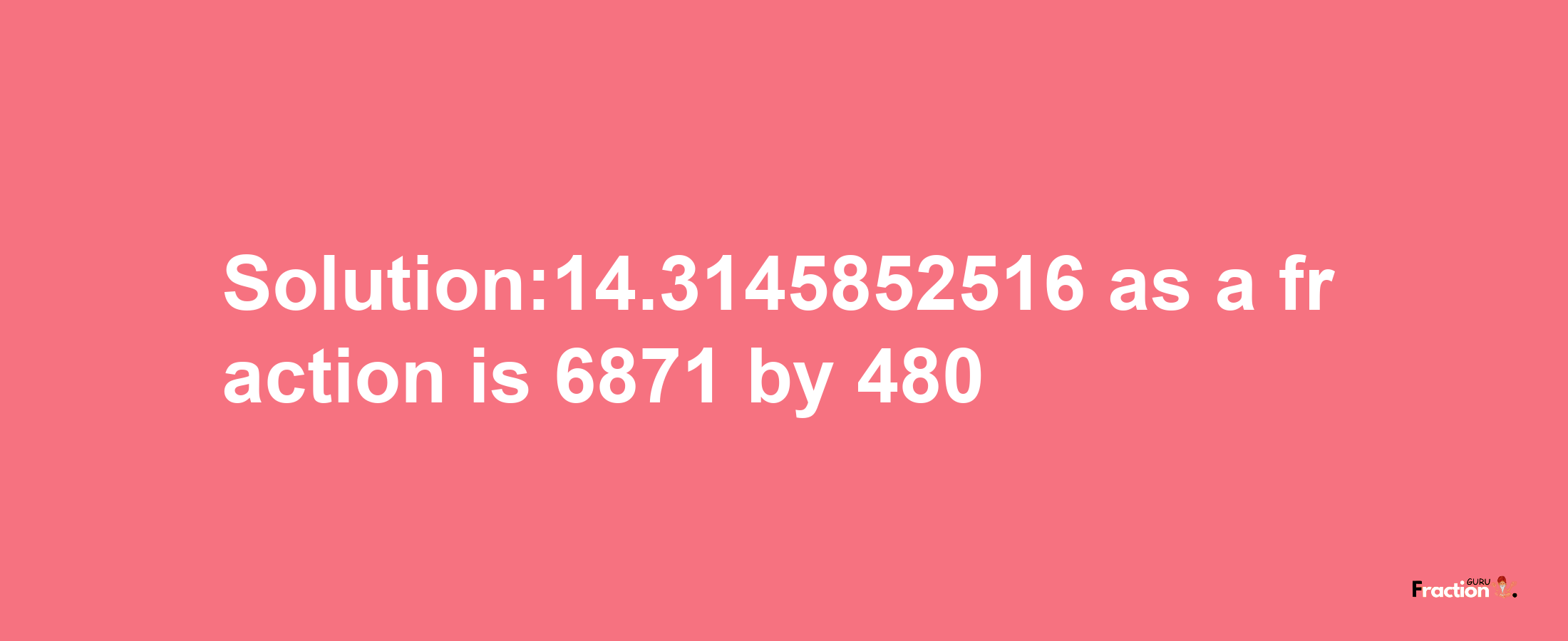Step 1:
The first step to converting 14.3145852516 to a fraction is to re-write 14.3145852516 in the form p/q where p and q are both positive integers. To start with, 14.3145852516 can be written as simply 14.3145852516/1 to technically be written as a fraction.
Step 2:
Next, we will count the number of fractional digits after the decimal point in 14.3145852516, which in this case is 10. For however many digits after the decimal point there are, we will multiply the numerator and denominator of 14.3145852516/1 each by 10 to the power of that many digits. So, in this case, we will multiply the numerator and denominator of 14.3145852516/1 each by 10000000000:
Step 3:
Now the last step is to simplify the fraction (if possible) by finding similar factors and cancelling them out, which leads to the following answer for 14.3145852516 as a fraction:
6871/480 / 1


